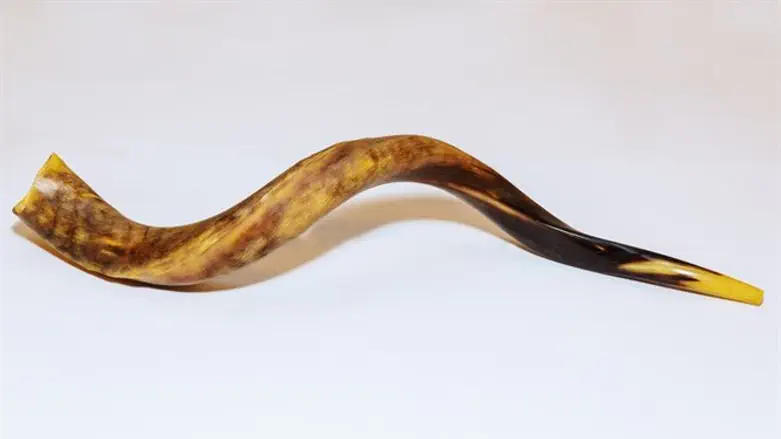
Throughout the world, Jewish families are preparing themselves for the new year, Rosh Hashana - shopping for holiday delicacies, beautiful dresses, colorful ties, and reading inspirational articles.
Jews of all different lands and assorted time periods have always celebrated Rosh Hashana in ways that combined their Jewish heritage and the influence of the country in which they lived. Foods of all kinds are used for simanim (symbolizing wishes for the new year, like the most common, apples dipped in honey for a sweet future).
Almost everywhere Rosh Hashana has always been s a very social holiday with friends near and far, wishing one another a blessed new year.
In one place, those blessings have been said in a whisper, if at all. Medieval Spain. Outward Jewish traditions were eliminated in Spain in 1492 when Spanish Jewry was expelled on penalty of death from its homeland of 1000 years. Half the Jewish population wandered across continents or over the seas to begin new lives. The other half converted (by force or by choice) and remained behind. There were no more synagogues or rabbis, Torah or Talmud, siddurim (prayer books) or knowledge of the Hebrew language.
The forced converts who were now Crypto-Jews celebrated whatever holidays they could observe quietly, without drawing attention to themselves.
Rosh Hashana, one of the holiest days of the year, was reduced to a vague memory, rarely celebrated. Hidden Jews did not even try to convert the Hebrew date of Tishrei 1 into a secular calendar date, according to Dr. David Gitlitz, professor at University of Rhode Island.
Conversos referred to Rosh Hashana as the Festival of the Horn, which made its commemoration even more elusive, since Spain had outlawed the blowing of the shofar. Before the Expulsion, Spanish Jewry explained the Festival of the Horn as the day “G-d created the world and freed Isaac from being sacrificed by Abraham…Jews on that festival blow the horn” in memory of this event. Any connections to repentance were reserved for Yom Kippur.
Conversos, called New Christians at the time of the Inquisition, were arrested if they were accused of: reading from “the book that had prayers for the Festival of the Horn”, eating any special sweet foods at the beginning of September or undertaking any strange practices at this time of year. Dr. Gitlitz noted that in the late sixteenth century, crypto-Jews from Fregenal de la Sierra were accused of “hanging a bag around their neck on Rosh Hashana, so as never to lack money during the next year.”
Still, the central symbol of this day was the Horn, and its fundamental practice, the blowing of 100 blasts. The Jews of Spain probably believed that they would never hear the tekiah, shvarim truah again.
A legend is told of an orchestra conductor, Don Fernando Aguilar, who was to hold a gala concert in Barcelona on Sept. 5, 1497 - an incomparable performance, including musical instruments from throughout the world. It was said that the Queen herself would be in attendance, along with royals and members of the Inquisition. The evening was Rosh Hashana. Barcelona’s crypto-Jews knew that despite the holiday, they must attend, or be suspected of backsliding to their Jewish ways.
The thrilling concert received uproarious applause from Barcelona’s who’s-who. One last piece was to be performed – an exotic instrument that had been silent in Spain for five years. Don Fernando raised his baton and the sounds filled the Spanish skies, “Tekiah, shvarim, teruah,” one hundred sounds. The audience cheered, “Bravo,” the conversos wiped their tears. Don Fernando, a brilliant musician and a converso, had brought back the sound of the shofar, at least for that night.
Some say this story never happened, that Barcelona did not have an orchestra in 1497, or that Don Fernando was arrested right after the concert. No historical sources have been found either way.
Whether it happened or not, the legend of Don Fernando Aguilar has given strength to generations of Jews who have suffered and sacrificed to keep their Jewish traditions and faith in the most difficult times of our people.
The Women’s Performance Community of Jerusalem and OU present a video clip of the shofar tale:
Another legendary story of courageous conversos is the subject of the upcoming epic production, “HIDDEN – The Secret Jews of Spain”, set to take the Jerusalem stage in November. Presented by the Women’s Performance Community of Jerusalem and OU Israel, the show is an adaptation of the 1870s classic historical novel by Rabbi Marcus Lehman, “The Family Aguilar”. The most highly-anticipated musical production of the year, “HIDDEN” chronicles the heroism of the Aguilars who struggle to keep their faith during the dark days of the Spanish Inquisition. This unforgettable theatrical event that will leave audiences singing with Jewish pride. For tickets or tax deductible donations: http://wpcjerusalem.wixsite.com/wpcjerusalem